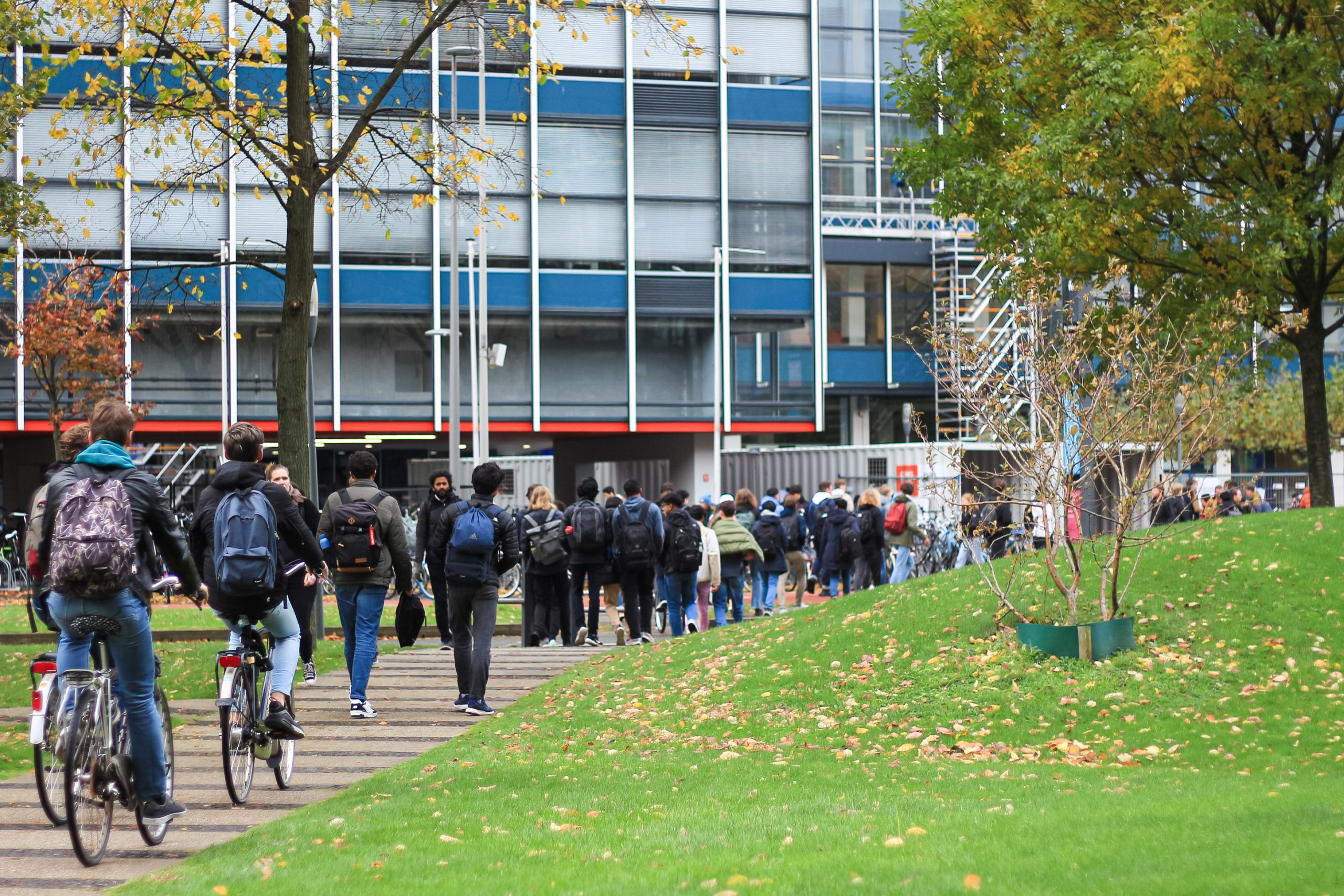After the ‘consultation round’ on profile and size, the thinking about TU Delft’s future will enter a new phase. It will involve eight committees over the next half year.
From the consultation round, the Executive Board noted that students and staff support growth. (Photo: Justyna Botor)
In recent months, students and staff have been consulted on the question of whether TU Delft should grow. To start the discussion, the Executive Board gave them the prospect of a future with 40,000 students divided across a few cities (the Multi Campus Strategy). That idea and number do not appear in an update that the Executive Board issued to all staff on Tuesday 7 February. The Executive Board is now referring to ‘Contours2030’.
No faculties will be moved
From the consultation round, the Executive Board noted that students and staff support growth, but also that faculties and/or departments ‘cannot be moved just like that or programmes discontinued’. “The Executive Board sees a new location primarily as a means to develop new initiatives and create an even greater impact on society.”
- If you want to know what issues the faculties, services, institutes and student representatives raised during the consultation round, read the 148 page document (in Dutch) on the intranet.
Eight committees will continue thinking about the future of TU Delft over the next half year. These committees fall under the the chairship of deans and directors. They comprise five ‘strategic advisory groups’ on education and students, research, innovation and valorisation, staff and culture, and locations and facilities. There will also be three support working groups on real estate, finance, and communications. The groups will examine whether and how TU Delft can achieve its growth goals. This is stated in the update of 7 February.
The committees’ work must be presented in five ‘core advisories’ about ‘opportunities for innovative educational, research and innovation activities’ that take into account the implications for ‘our staff and our culture, and for our locations and facilities’. The Executive Board, in consultation with the participatory bodies, will then take a ‘strategic decision’. How far this will go partly depends on any common issues raised in the five advisories, explains Communications Director Joost Ravoo.
Behind closed doors
The process will then not yet be finished as, starting in September, the Executive Board will hold ‘open meetings’ with staff members and students, not about the profile and size of TU Delft, but about ‘other strategic choices that have to be made’. According to Ravoo these may cover the campus vision (real estate), convergence (collaboration) and knowledge security. Apart from this, ‘other work forms’ may arise on top of the advisory and working groups to complete the process on the broader strategy. The new Strategic Plan 2024-2030 should be ready by the end of the year.
The strategic advisory groups will be chaired by:
- Education and Students: Caspar Chorus
- Research: Lucas van Vliet
- Innovation and Valorisation: Henri Werij
- Personnel and Culture: Aukje Hassoldt
- Locations and Facilities: Paulien Herder
The chairs of the working groups are:
- Real Estate: Jaco van Noppen
- Finance: Monique Thomas
- Communications: Joost Ravoo
The names of the other members of these eight committees will follow at a later date. The number of members they will have can vary. “Each chair will shape the group. I call on everyone who wants to be part of this to sign up,” says Ravoo. The advisory and working groups will meet behind closed doors ‘in the interest of open brainstorming’. “Beyond that, the members are free to gather input.
Do you have a question or comment about this article?
s.m.bonger@tudelft.nl


Comments are closed.